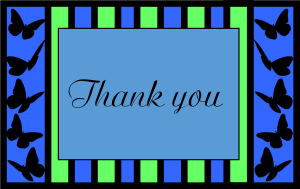Imagine my delight when The Penguin Lady read and responded to my post!
In a recent post I shared this Ted talk The Great Penguin Rescue in which “the penguin lady” Dyan deNapoli talks about an oil spill that occurred when a ship sank off the coast of South Africa in the year 2000, oiling nearly 20,000 (almost half) of the total population of African penguins, and the efforts made to rescue them.
The rescue was successful with 90 percent of the oiled penguins returned to the wild.
I found Dyan’s story inspiring, not only for the penguin rescue, but for the learning she credits to the rescue, especially that one person can make a difference, and that “when we come together and work as one, we can achieve extraordinary things.”
I was delighted when Dyan read the post and supplied additional information. Since so many of you were interested in her story, I wanted to share with you what Dyan had to say.
This is her comment:
Hello Norah! I just came across your great post about oil and oil spills. Thank you so much for sharing my TED talk about the Treasure oil spill rescue, and for informing your audience about these important issues. I really enjoyed your flash fiction, and listening to Cesar Harada’s TED talk as well.
Thank you for providing information about how folks can adopt a penguin. I wanted to share the websites of a few more penguin rescue centers that are in need of support, and through which folks can adopt a penguin or fund the hand-rearing of an abandoned penguin chick. There are many organizations rescuing penguins throughout the Southern Hemisphere (there’s actually a complete list of these groups in the appendix of my book, The Great Penguin Rescue), but the following three are organizations doing great work that I regularly support and like to highlight. These are all groups that are doing direct, hands-on work to save oiled or injured penguins. (I also regularly support The Penguin Foundation in Australia, which you’ve already listed above.)
SANCCOB (the center we worked with during the oil spill rescue in 2000): https://sanccob.co.za/
Dyer Island Conservation Trust (DICT – also working to save Endangered African penguins): http://dict.org.za/pages/give-to-save/give-to-save.php
Yellow-Eyed Penguin Trust (YEPT – saving Endangered Yellow-Eyed penguins in New Zealand): http://www.yellow-eyedpenguin.org.nz/passion/support-the-trusts-work/make-a-donation
Thanks again – and keep up the great work!
Cheers,
Dyan deNapoli – The Penguin Lady
These are the ones I listed:
Wildlife Adoption and Gift Centre
I hadn’t realised that Dyan had written a book about The Great Penguin Rescue, but I immediately downloaded and started listening to the audiobook. It is a great read and I highly recommend it. I am not alone in doing so. The book has won three awards.
In the book, Dyan tells the story of how she came to be The Penguin Lady, provides information about penguins, and explains how the great penguin rescue was carried out. (Probably other stuff too, but I haven’t finished listening yet.) I have also ordered a hardback copy as it includes colour photographs. I’m looking forward to receiving it in a week or two.
In a subsequent comment, Dyan shares some of her story:
And to answer your question about when and how I became interested in penguins, it was quite accidental. I had returned to college at the age of 31 to pursue my lifelong dream of working with dolphins (which I briefly did in Hawaii), and during my senior year I landed a full-time, 4-month internship in the Penguin Department at the New England Aquarium in Boston, MA. From the moment I stepped into the penguin exhibit and found myself surrounded by 65 honking, braying, cavorting penguins, I was pretty-much hooked. Their behaviors captivated me, and I was totally surprised to discover that each individual had their own unique personality and temperament – not really what I had expected in a colonial bird. And I wanted to learn more about them.
I stayed on as a volunteer at the aquarium after graduating, and when a position finally opened up a year later, I applied for and got the position of Penguin Aquarist. I was at the aquarium for 9 years in total, and after leaving there at the end of 2004, I founded my company, The Penguin Lady, to teach kids and adults of all ages about penguin biology, behavior, and conservation. I speak in a variety of settings both locally and internationally, and donate 20% of my proceeds to penguin rescue, research, and conservation groups. One of my favorite gigs is being a guest speaker/penguin expert on nature cruises, and next February I’ll be returning to Antarctica as a guest lecturer for Lindblad Expeditions/National Geographic, which I’m VERY excited about!! My mission is to raise awareness and funding to protect penguins – 13 of the 18 penguin species are currently listed as Vulnerable, Near-Threatened, or Endangered, and that is what drives me to do the work that I do.
Thank you, Dyan, for sharing so generously.
There is much more to discover about The Penguin Lady and The Great Penguin Rescue. She is as passionate about education as she about penguins. Through educating us about caring for penguins, she is helping us care for the environment and make a better world. You may be surprised by some of the information in this wonderful educational video. I was.
And I’ll leave you with Dyan’s reminder:

You can connect with Dyan on both Facebook and Twitter.

Thank you for reading. I appreciate your feedback. Please share your thoughts.



